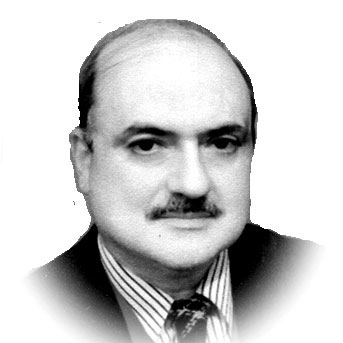The classical conundrum
WHAT does one do when faced with the classical question: which came first; the chicken or the egg? This is the classical conundrum that has been bandied around for as long as one can remember, and that not just by philosophers.
One would rather not get involved in the ramifications of this seemingly insolvable mystery, particularly considering that one’s intention is to dwell upon international affairs.
What draws one’s attention to it, though, is that every now and then providence throws up a murky situation that invites comparison with this never-ending spin of the wheel. The ongoing Pandemic appears to have gripped humankind by the throat.
What makes matters worse is the fact that no one appears to have a theory of sorts as to how it came about and why at this juncture when the state of technology was still wondering how to come to grips with a world that appeared to have lost its way.
What made matters worse confounded was the fact that the whizz kids of the world of technology and other confounded arts all of a sudden found themselves dumbfounded, if not worse.
The Indian gurus, who can be credited with having coined such devastating phrases as “nuclear non-proliferation”, “cross-border terrorism” and the like, will have their own axe to grind but more about that some other time.
For the time being, suffice it to state that India’s formidable state disinformation apparatus had apparently managed to convince the so-called developed world that its 800,000 strong security force in Indian-Held-Kashmir is there purely as a bulwark against “cross-border terrorism”. And the Western minds swallowed the bait, hook, line and sinker.
With the benefit of hindsight, how about taking an over–the-shoulder look at what happened – long ago – in London.
This metropolis – thanks to the bubbling enthusiasm of former Prime Minister Tony Blair – appeared at that epoch to have emerged as the fulcrum of “anti-West terrorist activity”. It was difficult to find adequate words to express one’s shock and sense of grief at the loss of so many innocent lives in the London bombings (remember?).
One had listened to Tony Blair as well as other allied leaders all reiterating their unshakeable determination to continue the “war against terror” and to root out the perpetrators of terror, or words to that effect.
None of them, however, spelled out how they intended to go about it. Surely not, one trusts, by physically liquidating all “the usual suspects”.
The London bombing episode, it may be recalled, was followed by a ‘non-event’ relating to the hullabaloo about the somewhat implausible scenario, according to which a group of young persons allegedly conspired to “blow up” several planes (and themselves) over the Atlantic, through the agency of a few bottles of soft drinks and some chemicals with unpronounceable names.
Just how they were going to mix the ingredients in the correct proportion on the flight and then to detonate the resulting ‘device’ was left to the imagination.
This said, one would have thought that the powers-that-be would take time off for a good hard and dispassionate look at the whole sordid affair (war against terror et al)? Not just a dispassionate look, but also one denuded of preconceived notions. To start with, there was the imperative need to agree on a definition of ‘terrorism’.
It would also be necessary to put a finger on what “terrorism” implies and, more importantly, what are the circumstances that give birth to it.
Nearer home, it has become our problem too. Every time a terrorist act is reported, one cannot help noticing that the brunt is borne by innocent victims.
But, then, isn’t this what terrorism is all about? The objective of the terrorist is to spread panic and terror.
A terrorist, therefore, can hardly be expected to be overly discriminating! The question that presents itself is: can innocent casualties be avoided and, if so, how? A possible solution may lie in changing the world’s response to terror.
The policy of countering terror with terror (as in the much-vaunted “War against Terror”) was at best a self-defeating exercise.
It would perhaps be asking too much of the powers that be to delve into the reasons that drive people to terrorism.
Nevertheless, some sanity must enter into the proceedings. For one thing, unnecessarily provocative reactions would need to be tempered a bit.
The fact that most, if not all, perpetrators of these outrages are young people should convey a message.
There has to be a cogent reason why young people are so alienated that they are obliged to resort to desperate measures to register their protest.
Is it because they feel left out in a World Order that is so horribly biased against the underdog? Or, is it in reaction to actions of powerful forces that continue to ride roughshod over the legitimate aspirations of the common man? Or, then again, is it a manifestation of the perennial struggle between the haves and the have-nots?
How about enlisting the help of the world’s elders? There are several Nobel Prize laureates who are on the loose end, so to speak. With some notable exceptions, most of them are brilliant and outstanding persons.
Could the United Nations not consider setting up a Panel of Elders drawn from amongst the Nobel Prize laureates to study this problem in depth and come up with viable options? If it comes to that, members of the panel could even serve as a bridge between the powers-that-be and potential terrorists so as to preempt the worst. Or, is one talking out of turn?
— The writer is a former Ambassador and former Assistant Secretary General of OIC.










